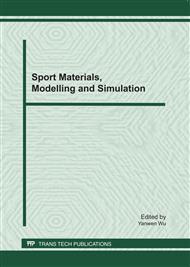p.23
p.29
p.33
p.39
p.45
p.51
p.56
p.61
p.67
Knowledge Modeling and Semantic Retrieval for Sports Information Based on Ontology
Abstract:
Ontology, with the excellent concept hierarchy and appropriately supporting for logic reasoning, is the basis of knowledge modeling on the Semantic Web and the effective tool for semantic retrieval. This paper pays attention to the sports information management in WWW. Firstly, based on the domain ontology model, we build the sports ontology which has the character of wide-cover and small information granularity. Then this paper present the semantic retrieval system for sports information using SPARQL query language, which realizes the intelligent retrieval at semantic level according to the relations of “synonymy of”, “kind of” and “part of” between sports concepts. For the trend of exploding increase of sports information, this research has practical significance to some extent.
Info:
Periodical:
Pages:
45-50
DOI:
Citation:
Online since:
February 2011
Keywords:
Price:
Сopyright:
© 2011 Trans Tech Publications Ltd. All Rights Reserved
Share:
Citation:


